I remember once talking with a friend who was recovering from an eating disorder and telling her she looked beautiful. “A lot of people have been saying that,” she said, and told me it bothered her. I asked her why, worried she would say it was because she felt she had looked better when she was sick. Her answer surprised me: “Because it means people notice.”
To her, this acknowledgement that people notice, and judge, her appearance was at the root of her illness. It is also at the root of the misgivings I have with Dove’s newest campaign.
The company asked a composite sketch artist to compile an image of women based on how they describe themselves, and then another one based on how a stranger described them. The women were then shown both images side by side. In the video, we see them crying, saying that they look so much prettier in the sketch made from strangers’ comments than the sketch based on their own. One woman, Kayla, says she looks fatter and less happy in the sketch drawn from her descriptions.
CAITLYN
While I didn’t feel good about the campaign, it seemed from my Facebook and Twitter feeds to be inspiring others. So, I went into a webinar hosted by Dove, featuring Kayla, the aforementioned “Real Woman” who was part of the campaign, and Gil, the composite sketch artist, with an open mind.
TESS: “I feel naked. Happy. But nuuuuuude.”
My frustrations stem from what I think of as an inherent hypocrisy to the campaign. (I’ll leave the “Real Women” thing alone, even though it also drives me crazy.) How can we combat beauty ideals if we are telling these women that one portrait looks more beautiful than the other? As one person commented when a friend posted the video, “What if you look like the women on the left?” This campaign seems to feed into the idea that there is a “more beautiful” and a “less beautiful.” It cuts to the core of what my friend described to me during her recovery. It emphasizes the importance of how you look, not who you are. Doesn’t the very idea that there is a more or less beautiful take away from the point?
HALEY
However, I now can also appreciate why so many women feel strongly, and positively, about this campaign. It does make us think about how negatively we perceive ourselves, and how judgemental we are in our own heads, never mind out loud. As I watched the video, I shook my head at how uncomfortable I often feel without makeup, even around those I love most. To me, the most interesting aspect of the campaign is that it speaks to cultural and societal pressure on women to downplay themselves, not just physically but in all aspects of their life, for the sake of “modesty.” We should all think about the idea that, potentially, we don’t see ourselves as we are because judgement gets in the way. And this translates beyond the physical. We are, in some ways, denying ourselves access to many wonderful truths about who we are because we are too busy critiquing.
JEN
And that isn’t just true for women. “The things that come to your mind are the family jokes,” said Kayla during the webinar, illustrating how we often create a culture of insecurity not just in our own heads but in our own homes. Whether it’s the classic Mean Girls moment staring in the mirror with your roommates and criticizing your bodies, to mothers complaining about their looks in front of their children, to fathers making negative comments about girls’ bodies as they mature into women, to the relatives who always joke about how everyone in the family has the same huge forehead, these negative messages are everywhere in our lives before we even turn on a television or open a magazine. (Or, these days, open ourselves up to public criticism online.)
BECCA: “I’m so used to everyone seeing me with makeup, it’s what feels normal. But in the end accepting yourself au natural is very important to inner happiness! So I try!”
I see the surface, feel-good value in this campaign. I really do. And I appreciate it for the women who it will inspire, who it will make feel beautiful. I expect this campaign will brighten more than a few women’s days, and we could all use more of that. But will it address the deep-rooted insecurity, scrutiny, and judgement that causes women to feel at the core of their being that they are ugly? No, and that’s okay. It’s not supposed to. But I can’t help but feel a sense of hypocrisy here: We look at these drawings and exclaim, “But she’s so much PRETTIER in real life than in this image!” Sorry, but doesn’t that just bring us right back to the problem?
The idea of judging aspects of our bodies, faces, and personalities as beautiful doesn’t seem to help anyone. Are we less beautiful when we are angry, or depressed, or grieving? Because these things are a part of who we are. I’m not saying every ad campaign (or…any) needs to change the world. But I do think this campaign, the crux of which is judgement, in a way enforces the negative action it’s attempting to send up.
LISA: “I don’t wear much make up on the day to day so I don’t think my look is very different than it would with cosmetics.”
What it comes down to is this: It shouldn’t be about a judgement of beauty. I appreciate this Dove campaign for opening this dialogue, but to me, campaigns like this don’t give young girls the tools to overthrow these negative feelings. It did put a smile on some women’s faces, though, and that is always a beautiful thing.
MONICA: Y’all really couldn’t have asked for a better day. This is my three days without shampoo, working from home after a big night out face. FEAST YOUR EYES. It should not have been this way. When I heard you were looking for make up-less shots I thought to myself, “I’ll just find one and send it over, no need to shower today!” only to discover there were none. None at all. Not on my phone, not on my computer, and certainly not on Facebook. Being ginger, I’ve got what the scientific community calls “literally no eyebrows or eyelashes,” and years of feeling weird about it have led to those just being things I draw on every day. Finding a photo without foundation or eyeliner or whatever was easy-peasy, but no brows and lashes? This is the most naked photo of me that I ever hope finds its way online. I look like someone just broke up with me in a rom-com.
SARA: Like…it’s not the best picture of me ever but it’s also not the worst, you know? I love wearing makeup (and most days don’t leave the house without at least a little bit of it), but I wouldn’t say I’m terrified at the idea of this being published online. I guess that’s a start.



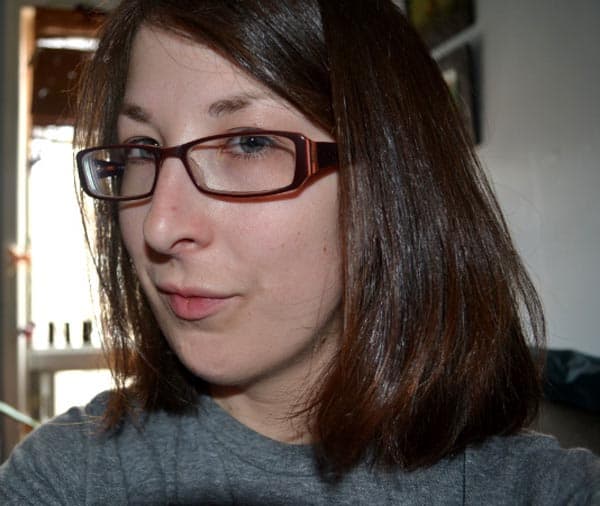
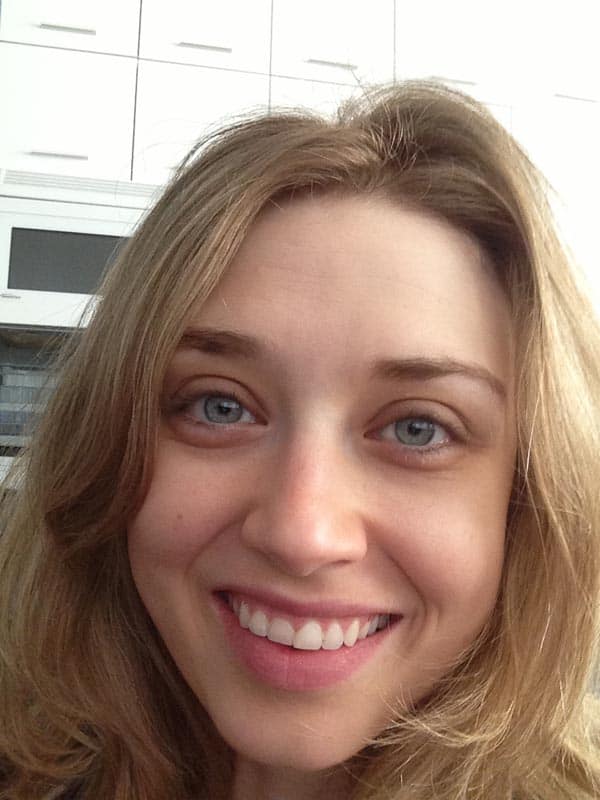
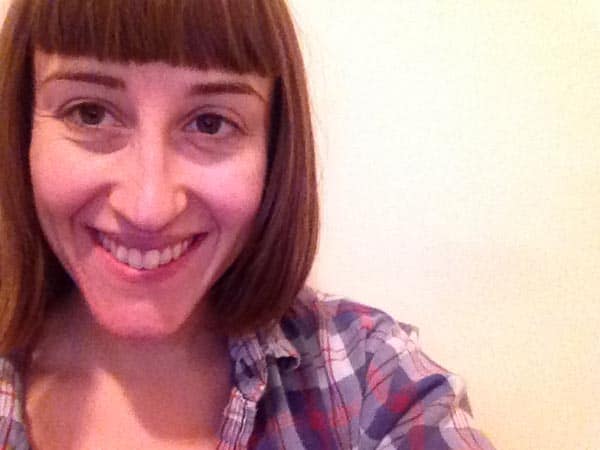

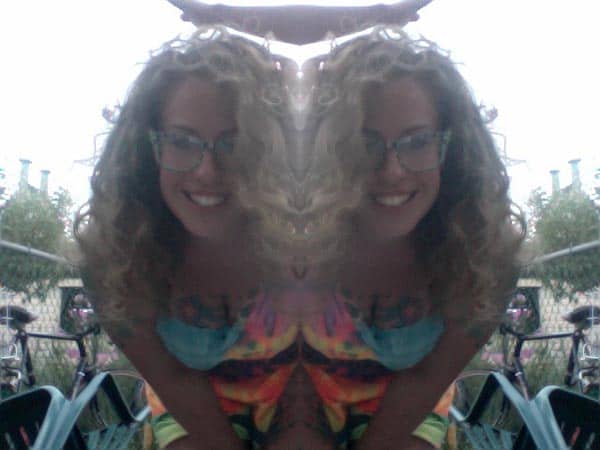
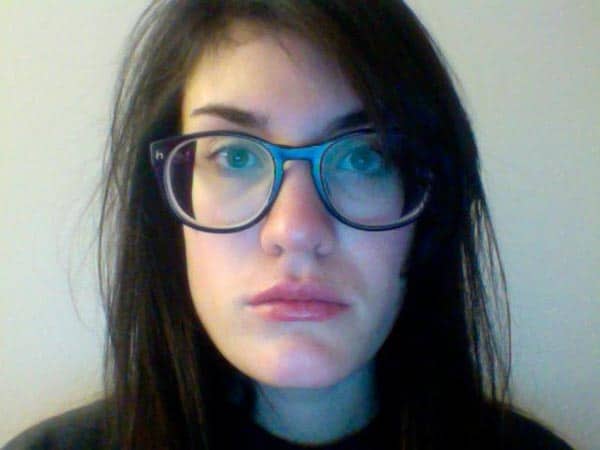
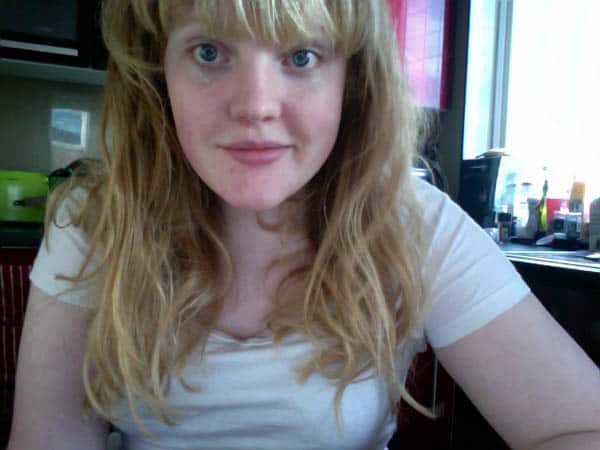
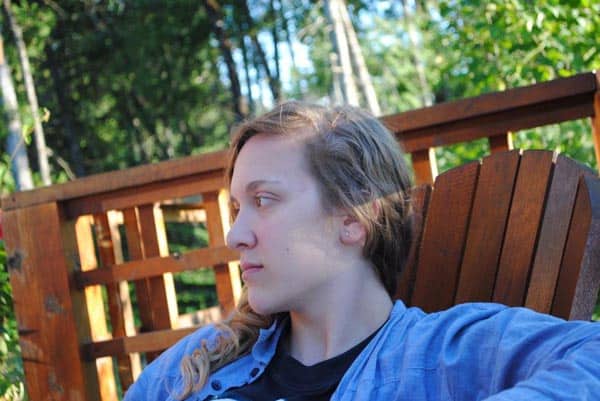
 Follow Us On Instagram
Follow Us On Instagram
